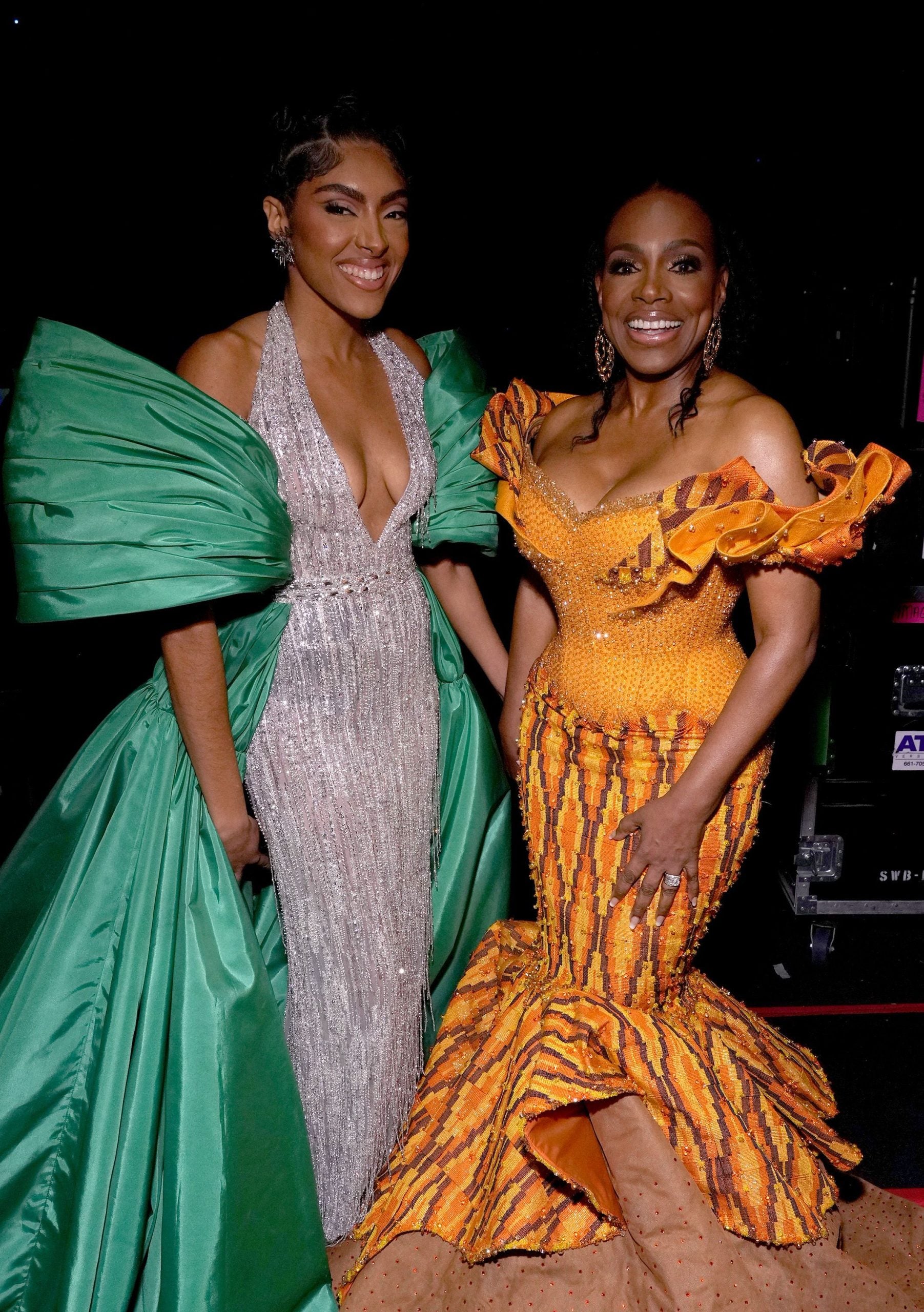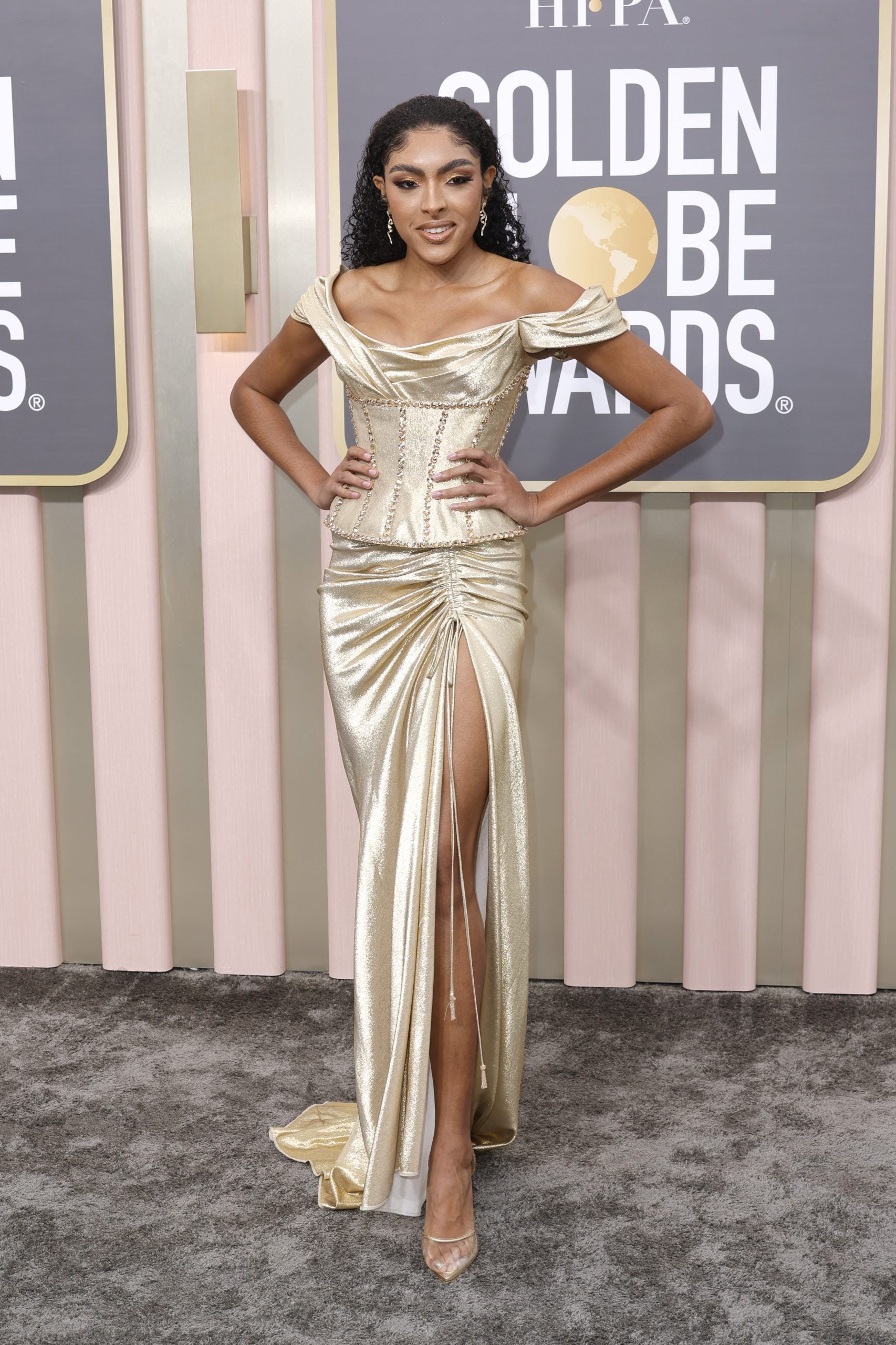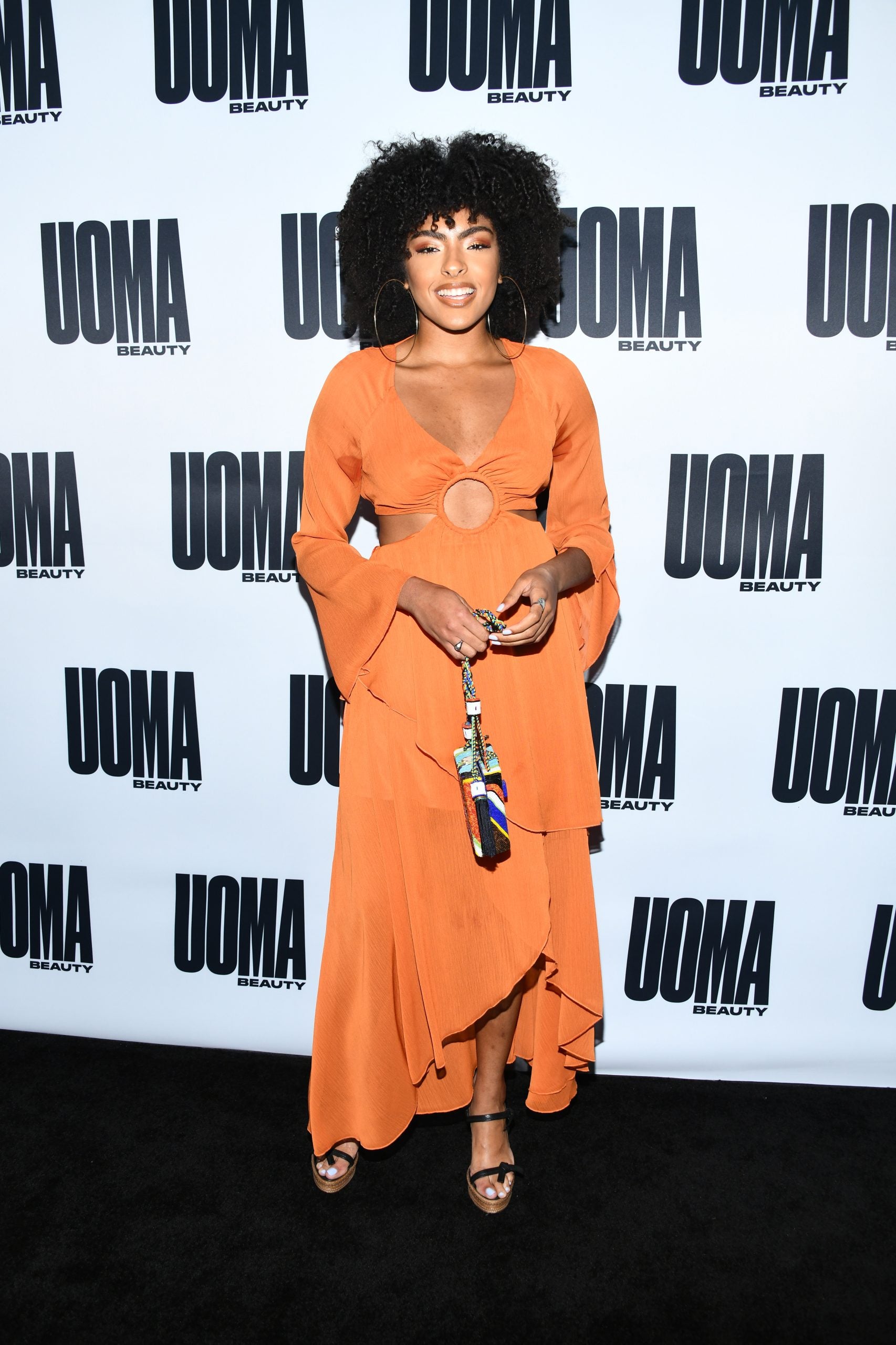
Sheryl Lee Ralph did not have to look far this awards season when it came time to choose a stylist to assist her with her many red-carpet appearances. Meet Ivy Coco Maurice, the 26-year-old stylist, and daughter of Sheryl Lee Ralph, behind all her incredible red-carpet looks. From that dazzling purple Aliétte gown she wore to the Golden Globes to the pink princess Tony Ward dress for the Spirit Awards — the pair have created quite the portfolio.
“Styling my mom, personally, I feel like I’ve been doing it since I was a kid,” Ivy tells ESSENCE. “She’s always been interested in what I have to say when it comes down to wardrobe, and I’ve always given her advice, and that’s what happened last year.” After coming off the high of styling her mother in custom Harbison Studio for her soul-turning Super Bowl LVII, we were able to catch up with Ivy ahead of her busy upcoming schedule of events starting with The NAACP Image Awards, SAG Awards, the Essence Black Women In Hollywood and more. We talked with the budding style star all about her journey to fashion, the process of collaborating with her mom on wardrobe, the importance of Black style, and how she takes care of herself as a creative.

ESSENCE: Let’s start with the Super Bowl look.
IVY: Charles [Harbison] was able to create this amazing red jumpsuit, and I curated the color of the white (for the choir) and then seeing Rihanna [and her dancers] also wear red and white. I was like, wow, talk about manifestation and just like Black artistry in itself, like we were all on the same vibration. That is going to be a historic moment in Black history, personally. That was the first time anybody has sung the Black National Anthem in the stadium for the Super Bowl, and it’s a visual album now available on Apple. That will never be forgotten. That’s how Black art is making history.
What drove you to fashion when you were deciding what you wanted to do with your life & career?
A lot of people don’t know this, but I spent my early childhood years and all my summers in Jamaica. My grandmother [Ivy Ralph], was a pioneer of fashion in Jamaica. She invented the Kariba Suit (also spelled Kareeba), which was one of the national uniforms for Jamaica and politicians such as Michael Manley, PJ Patterson, and other politicians around the world, and in the 1970s, it was their look. Grandmother went from menswear to really just designing all the wardrobes for women and even full-figured women. You know, we see this movement of positivity of plus sizes and all shapes and sizes, but to my grandmother in Jamaica, that was the norm. You know, Caribbean women are voluptuous, beautiful women. I grew up spending time in her shop, making clothes. She taught me how to hand stitch and knit. I woke up at the crack of dawn doing sketches, picking up remnants, learning fabrics, and just making her shop a complete mess, and it was my passion. I wanted to be like my grandmother. I’m also named after my grandmother. Her name is Ivy Ralph, and so it truly is in my DNA. One of the things she always used to say growing up was ‘style, you have it or you not have it, which means either you got it or you don’t.
My mom pulled out the other day one of my first sketches when I was like six years old. And I think after my grandmother died in 2018, I took some years to really grieve that, and then I started the House of Ivy, making exclusive garments and having occasional drops. One thing I loved is that my grandmother, when she dressed somebody and made a wardrobe, she didn’t want everybody to have the same thing. So when I do select drops for House of Ivy, it’s always very exclusive. When you catch it, you get it because I want everybody to buy something different and fall in love with something different. Starting the House of Ivy was an homage to my grandmother and an ode to her legacy, and, you know, producing garments in her factory in Jamaica is not easy, but it is one of the biggest blessings.

“I realized I’m good at this but I still really want to learn more, but it’s always been in my DNA, fashion and styling. It’s literally who I am, the people I’ve been surrounded by my entire life.”
What does Black style/fashion mean to you, especially now being a part of that long legacy?
Black fashion is fashion, period. This world does not operate without Black creativity. What we’re rooted in, what our people are, and who our ancestors are that runs through our creativity. To be honest, Black designers were the ones that gave me a chance. I talked about Jason — Jason believed in me. The designers will tell me, ‘we’ll give you the garment, but you know how to put the look together,’ like people really believing in you. I feel like the energy between Black art and designers exudes, ‘I want all of us to win.’ It’s such a representation of how we’re all capable of creating and achieving great things.

How do you take care of yourself as a fashion creative always on the go?
I still have a balance. I still do consulting. I still have another job that continues to pay my bills. I’m starting to transition into full-time styling. I’m still building a business also while giving myself the balance. I’m a big Yogi, I meditate, and I’m actually in the works right now getting my breathwork certification. My brother [Etienne Maurice], my cousin [Marley Ralph], and I run a nonprofit called Walk Good LA that we started in 2020 in response to the racial uprising. The death of Ahmaud Arbery really moved my brother, and so we protested for ten weeks straight, and then after protesting, we were like, we’ve been fighting together for the past 10 weeks straight, and we need to heal together. We all need to show up as people of color, Black people specifically, to heal. We’ve been through so much as a community. So showing up for my mental health, number one, has always been imperative. My mom always reminded me of that, and she put me in therapy when I was young. I always knew the importance of giving yourself rest, time, balance, and peace.
When I’m not working, I’m very much a homebody, so prayer, meditation, I love being in my living room, and just doing a great [yoga] flow. I’m always working, but I just take my me time really seriously. So I love when I’m just in my space, praying, meditating.







What would you say to that younger version of Ivy?
I always say to her, ‘let your light shine.’ Don’t shy away from the gifts that God has blessed you with. Because I look at myself now, and I look how God has detoured me to my destiny and how I want to tap in, and I want to cater to my creativity to baby Coco. I never thought that I would be here, and sometimes I’m always talking to my younger self, reminding her it’s going to be okay, and I will just always tell my younger self. Just like Grandy said to my grandmother, ‘This little light of mine, I’m going to let it shine.’ I think people take that hymn for granted. I feel like people actually don’t listen to that song. Like, I’m gonna let it shine, shine, shine, and then you hear our generation on social media last year was like, ‘don’t dim your light, don’t dim your light,’ but literally, if you’re a part of the Black diaspora, you know that hymn, I’m gonna let it shine. It’s like we’ve been saying that in our culture for years. We’re now just hearing it, it’s now just digesting? That’s what I would tell my younger self.
[This interview was edited and shortened for clarity]





